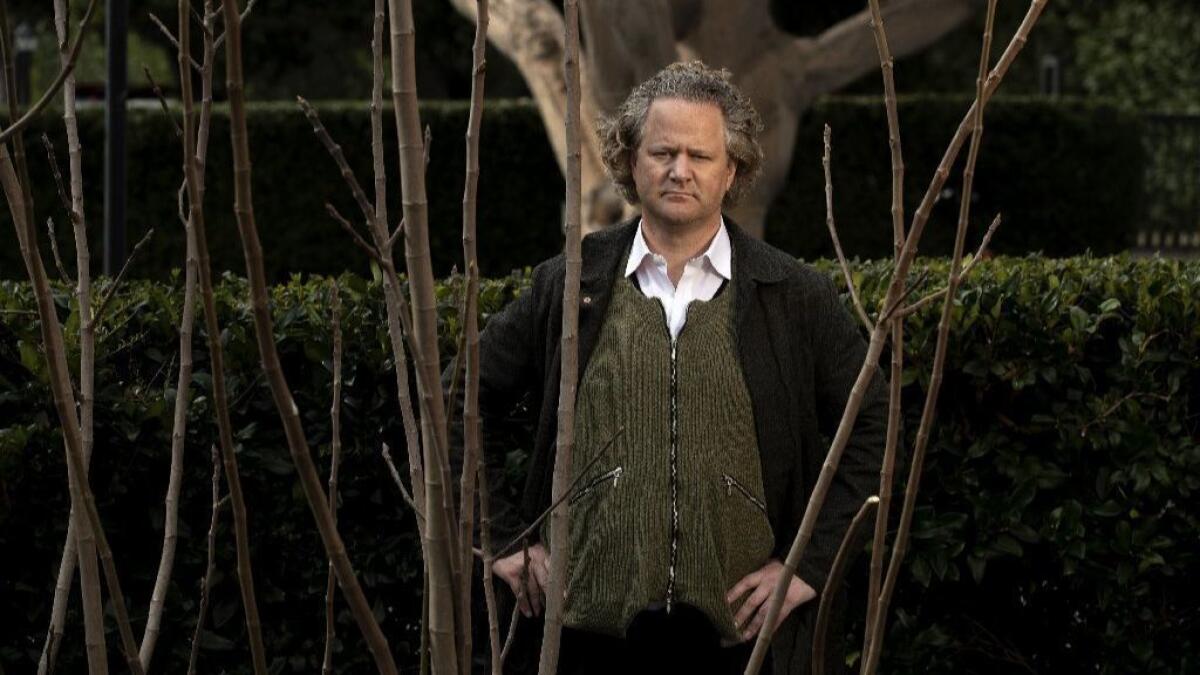Oscar-nominated ‘Never Look Away’ tackles Germany’s darkest history

Learning that his film “Never Look Away” was nominated for the foreign-language film Oscar was a big moment for Florian Henckel von Donnersmarck, but it wasn’t a shock. The German-born filmmaker has already won an Academy Award in this category for “The Lives of Others” in 2007 and “Never Look Away” had also cleared the shortlist, so its nomination was certainly a possibility. What turned out to be a complete surprise was the fact his director of photography, Caleb Deschanel, earned a cinematography nomination for the film.
“I’m told you have to have a certain percentage of the entire branch putting that film as first position. And, so, I was very happy, because it meant that more people had actually seen the film than I thought,” Von Donnersmarck says. “I think of all the nominated films we were the only one not yet to be out in theaters, so it really just meant that people were interested enough to go to those screenings. And Caleb, I mean, he has [worked on] so many great films. He really made it possible for me already as a child to understand that cinematography is art. But still, I feel that in some way he outdid himself here on this movie.”
Premiering at the 2018 Venice Film Festival, “Never Look Away” is very loosely inspired by the life of Gerhard Richter, a noted German painter who experienced the horrors of WWII as a young child. Von Donnersmarck says he always wanted to make a film about how an artist can use terrible things that happened in their life to create great art. He found his muse in Richter.
“I’d been looking for a story about that for a long time, and then I heard one element from the life of this German painter that kind of inspired me to create this fictionalized story,” Von Donnersmarck says. “It was more inspired by it than exact telling of his life, and he was in a way just one of the sources that allowed me to give it some very concrete reality.”
The now Los Angeles-based Von Donnersmarck knew, along with many in the art world, that Richter had created an iconic painting of a young woman holding a child and that it was based on a family photograph. Eventually, though, it was revealed that the woman in the painting was actually Richter’s aunt and he was the child.
Moreover, shortly after the photo was taken, his aunt was diagnosed with schizophrenia and was killed by the Nazis. She was a victim of a program in which citizens the Nazis felt could not genetically contribute to their goal of a master race were eliminated. Making the story even more melodramatic was what a journalist discovered in the early 2000s.
“What he uncovered was that the woman that Richter ended up marrying, her father was a high-ranking SS doctor responsible for part of the Nazis’ eugenics program and [oversaw] 900 of these forced sterilizations,” Von Donnersmarck says. “I thought this was a really, really interesting connection, because it allowed for a really powerful duel between a young artist who’s developing his intuition and at the same time is living under the same roof with a person who is also his greatest enemy.”
Despite the film’s critical acclaim, that subject matter has been tough for some Germans to see on the big screen. “Never Look Away” has been something of a disappointment theatrically, but Von Donnersmarck saw a slow start for another tough watch, “The Lives of Others,” and knows the attention a major award or nomination can bring can truly turn things around.
“I remember when last year, a German director [Fatih Akin] won the Golden Globe, the first thing he said was, ‘Oh, great, this will mean 100,000 more admissions in Germany.’ And I thought it was so interesting that he thought of it that way, but he knew that in Germany, this kind of international attention is very, very important,” Von Donnersmarck notes.
“And if you talk to Werner Herzog, or Wolfgang Petersen, for that matter, their reputation in Germany was strangely made abroad, and their success in Germany came through their success abroad. It’s a weird mechanism; of course, it would be nicer if Germany were more confident maybe in their own assessment of things.”
FULL COVERAGE: Get the latest on awards season from The Envelope »
More to Read
From the Oscars to the Emmys.
Get the Envelope newsletter for exclusive awards season coverage, behind-the-scenes stories from the Envelope podcast and columnist Glenn Whipp’s must-read analysis.
You may occasionally receive promotional content from the Los Angeles Times.







